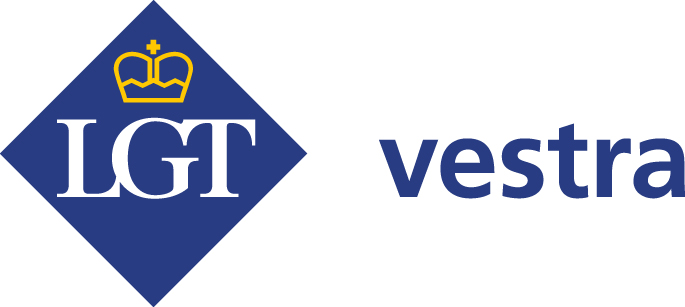This month:
Politics continue to dominate the investment agenda, with Brexit and the US Election now looming large amid our broader COVID woes. Here, wealth management experts from our panel explore what worst case scenarios may mean, along with rising corporate threats and the need to explore alternatives.
Expert investment views:
The implications of a no-deal Brexit, particularly for the FTSE, are put under the microscope
Experts argue there may be more important market drivers than the US Election result
Investors are warned to heed the headwinds facing hitherto unassailable technology giants
The case for alternatives is made as investors wake up to the death of the “60:40 rule”
Featuring this month’s experts:




1. What impact would a no-deal exit have on the FTSE 100?
As the negotiations over a trade deal between the UK and the EU continue to twist and turn, we ultimately think there’s an increasing likelihood that a deal will be struck. But, a no-deal exit still cannot be ruled out.
If the unlikely does happen and we leave the EU with no deal in place, we expect a limited headline impact on the MSCI UK, in local currency terms. We anticipate that a weaker sterling will broadly offset the declines in the domestic exposure of the index.
Beyond this, we expect that a no-deal exit would cause sterling to weaken to GPB-USD 1.25 and EUR-GBP 0.92–0.95, and the UK economy to briefly dip into a decline for the first half of the year. We also expect further monetary support from the Bank of England, including the possibility of negative rates.
We anticipate a double-digit return from the FTSE 100 over the next 9 months. But a second nationwide lockdown due to rising COVID-19 infection cases in the UK would drag GDP lower and have a continued negative effect on domestic stocks
In light of weaker sterling and low interest rates outlook, we could see a significant drop across UK domestic banks, down 15%–20%, and insurance expected to be down 7%–10; although at a headline level the drag from these weaker financials and suffering domestic stocks would nearly be offset by the boost from the weaker sterling.
Currently, we hold a “Most Preferred” view on UK equities. Energy, in particular, poses upside potential should the oil price increase to our target of USD 60/bbl. Meanwhile, the global nature of the UK index should help it rise in lockstep with the wider global economic recovery.
At the same time, financials are trading at deep discounts and could see some partial upside in the case of a Brexit trade deal and the reinstatement of dividends in 2021.
We anticipate a double-digit return from the FTSE 100 over the next 9 months. But a second nationwide lockdown due to rising COVID-19 infection cases in the UK would drag GDP lower and have a continued negative effect on domestic stocks.

Caroline Simmons
UK Chief Investment Officer at UBS Global Wealth Management
2. Pre-election worries
Last week, post the announcement that President Trump was diagnosed with COVID-19, markets initially dipped and then recovered. Mr Trump says that his health dipped and then recovered and that he now feels totally fit. In a deeply divided America, Trump is either a hero who has battled and won or an irresponsible leader who does not care for anyone else but himself.
If Mr Trump is to win the election, he needs something radical and he will no doubt continue to lash out at the opposition and make surprise announcements. The Democrats and Republicans have been deep in negotiations over the next stimulus package but the President abruptly cancelled negotiations until after the election. He says, if re-elected, he will provide a huge stimulus package after the election. However, the Democrats were proposing a $2.2 trillion stimulus package and the Republicans only wanted $1.6 trillion.
The Democrats may borrow more, thus increasing the supply of Treasuries and threatening higher long-term borrowing costs, but, while the pandemic continues, this may be offset by Federal Reserve purchases. Thus, a Democrat win may not be bad for investors
The Democrats may borrow more, thus increasing the supply of Treasuries and threatening higher long-term borrowing costs, but, while the pandemic continues, this may be offset by Federal Reserve purchases. Thus, a Democrat win may not be bad for investors.
If Trump were to be re-elected, then that would also not be outright negative for markets. The danger for markets in the short run is a disputed election, which could see a period of post-election infighting that would bring any further fiscal support into question as the pandemic crisis continues.
Clearly, the remaining period leading up to the election will add to volatility in markets, but in the end the impact may not be that large. Monetary and fiscal support will remain. With interest rates low, equities will still be the favoured asset class. Progress on treatments and vaccines are likely to be more important for sentiment than votes in the US election.

Jonathan Marriott
Chief Investment Officer at LGT Vestra

Top Tip
Attempting to read the investment runes is tricky at the best of times and pretty mind-boggling at present. Luckily, there are experts who do this full time, backed by institutional might. You have a lot to gain and nothing to lose by taking the chance to speak free of charge to a shortlist of best-matched wealth managers to explore how getting an expert in your corner could improve your investment returns.

Lee Goggin
Co-Founder
3.Outfacing the Facebooks of the world
I keep circling back to a great quote by Warren Buffett: “Only when the tide goes out do you discover who’s been swimming naked.” It is particularly relevant given recent events in financial markets.
The selloff in February/March included the lame ducks (i.e. firms with questionable business models propped up by cheap credit) and solid companies which could withstand a lockdown-led recession.
The rebound, however, has been much more focused. The narrow set of companies includes traditional growth players, i.e. those with above average increases in earnings and profits, as well as those in the communication services and technology sectors.
But is enough attention being directed at some of the recipients of this wall of money? Many business models are reliant on people freely handing over their data in exchange for a service. What happens if governments decide to regulate the use of data, or users want paying for the use of their data?
While these companies currently swim with a wetsuit and flippers on, if the headwinds of regulation and taxes prove to be strong enough, they might also be left swimming in the nude, especially in light of their current valuations
In response to the COVID-19 pandemic, governments have provided unprecedented levels of economic support, with no detail on how this debt will be paid down. Clearly there will be changes in taxation, and the burden will likely fall on those “with the broadest shoulders”. That can mean companies as well as individuals.
As such, the FAANGs – Facebook, Amazon, Apple, Netflix and Google– could be in the firing line in the US and abroad. It is well known these multinationals pay limited taxes, but the global consensus needed to stop these companies moving profits has stalled. France’s 3% tax on digital companies may be a start, but more action is needed to stop the multinationals using patents and intellectual property to book profits in different low-tax countries.
Other issues could beset these companies too, such as political pressure due to their apparent inability to stem disinformation. There are also questions about their augmented growth projections given traditional businesses have shifted more online. More competitors are chasing lower consumer spending.
At some point, we believe the valuations of these stocks will reset to more rational levels. There could be a correction. Earnings could catch up to validate prices. While these companies currently swim with a wetsuit and flippers on, if the headwinds of regulation and taxes prove to be strong enough, they might also be left swimming in the nude, especially in light of their current valuations.

Rebecca Cretney
Investment Counsellor at Nedbank Private Wealth
4. The death of 60:40 investing
The classic 60:40 portfolio – a blend of 60% equities and 40% bonds – has been the foundation of portfolios for decades. But, as the regulator likes us to remind investors, past performance is no guide to future performance. Indeed, the evidence suggests this blend will struggle to deliver in the future.
One of the advantages of the model was that when equities went down bonds tended to go up, and vice versa. So, you got diversification benefits. But the two asset classes are more correlated today. And valuations for both are near to record highs, suggesting future returns are likely to be subdued.
As a consequence, we’re having to look at alternatives. For us that means things like gold, infrastructure, real estate, private equity, private debt and hedge funds.
Social infrastructure, like hospitals and schools, is particularly attractive. Returns tend to be government-backed and based on simple provision of the facility rather than how much it is used (unlike toll roads, for instance). This provides a degree of protection to the economic cycle
There is insufficient space to elaborate on the pros and cons of each here – in truth you need a blend of them. But let’s look briefly at infrastructure, which has strong attractions and looks well placed to help fill the income vacuum left by bonds. Returns are usually index-linked, which can offset inflation should it break out, as many of us fear.
Social infrastructure, like hospitals and schools, is particularly attractive. Returns tend to be government-backed and based on simple provision of the facility rather than how much it is used (unlike toll roads, for instance). This provides a degree of protection to the economic cycle.
We believe that being able to choose the right blend of alternatives will make a big difference to returns in the coming decade and this is one area where professional wealth managers can demonstrate their value.

James Horniman
Portfolio manager at James Hambro & Partners
Important information
The investment strategy explanations contained in this piece are for informational purposes only, represent the views of individual institutions, and are not intended in any way as financial or investment advice. Any comment on specific securities should not be interpreted as investment research or advice, solicitation or recommendations to buy or sell a particular security.
We always advise consultation with a professional before making any investment decisions.
Always remember that investing involves risk and the value of investments may fall as well as rise. Past performance should not be seen as a guarantee of future returns.




